Introduction
In today’s data-driven world, content marketing analytics tools have become indispensable for brands striving to create impactful and engaging content strategies.�
With a plethora of tools available, each offering unique insights and capabilities, it can be challenging to select the right one that aligns with specific business goals.�
From tracking website performance and user behavior to analyzing social media engagement and SEO, these tools empower marketers to make informed decisions based on real-time data and historical trends.
1. Google Analytics
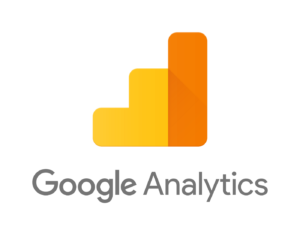
10 Essential Content Marketing Analytics Tools for 2025
Brief Overview: Google Analytics is a powerful and comprehensive tool that helps users understand audience behavior on their websites. From tracking visitor demographics to real-time insights, it provides extensive data for informed content marketing decisions.
Pros:
Free to use with advanced capabilities.
Integrates seamlessly with Google Ads and other Google tools.
Offers comprehensive demographic and engagement insights.
Real-time reporting for immediate analysis.
Cons:
Steep learning curve for beginners.
Limited data retention on free version.
Privacy concerns due to data sharing.
Requires setup of conversion tracking for enhanced functionality.
2. SEMrush

10 Essential Content Marketing Analytics Tools for 2025
Brief Overview: SEMrush is an all-in-one tool ideal for content marketing and SEO analytics. It offers keyword tracking, competitor analysis, and backlink audits, making it suitable for businesses focused on content visibility and organic growth.
Pros:
Powerful competitor analysis features.
Keyword research tailored for content optimization.
Detailed backlink analytics.
Comprehensive domain overview.
Cons:
Premium pricing structure.
Data accuracy can vary, especially for lower-traffic sites.
Limited usage for non-SEO focused marketers.
Slightly complex UI for new users.
3. HubSpot Analytics
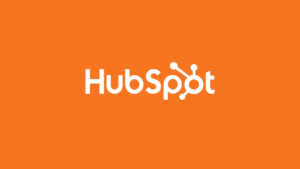
10 Essential Content Marketing Analytics Tools for 2025
Brief Overview: Known for its CRM capabilities, HubSpot also provides analytics that are deeply integrated into its marketing suite. It tracks user interactions, lead generation, and social media engagement, making it suitable for businesses using HubSpot’s ecosystem.
Pros:
Integrates well with HubSpot CRM.
Strong lead tracking and conversion analysis.
Provides in-depth social media metrics.
User-friendly interface.
Cons:
Expensive for small businesses.
Limited integration outside of HubSpot.
Customization options can be restricted.
Primarily suitable for HubSpot users.
4. Adobe Analytics

10 Essential Content Marketing Analytics Tools for 2025
Brief Overview: Adobe Analytics is a premium tool designed for enterprise-level content marketing and web analytics. Known for its detailed reporting and customization, it’s popular among businesses needing advanced segmentation.
Pros:
Highly customizable reports and segmentation.
Strong data visualization tools.
Reliable multi-channel tracking.
Comprehensive customer journey mapping.
Cons:
Expensive and requires technical expertise.
Steep learning curve for new users.
Limited scalability for smaller businesses.
Complexity may be overwhelming for basic needs.
5. Sprout Social
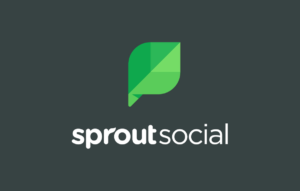
10 Essential Content Marketing Analytics Tools for 2025
Brief Overview: Sprout Social specializes in social media analytics, enabling users to measure social engagement, follower growth, and sentiment analysis. It is an ideal tool for brands focusing on social media-driven content marketing.
Pros:
Excellent social media insights and engagement tracking.
Easy to use with a visually appealing dashboard.
Sentiment analysis for better brand management.
Scheduled reporting options for automation.
Cons:
Limited to social media platforms.
Expensive, especially for larger teams.
Doesn’t offer website analytics.
Limited customization for reports.
6. Ahrefs
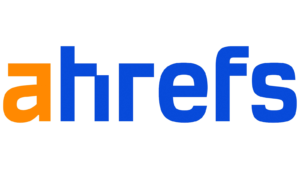
10 Essential Content Marketing Analytics Tools for 2025
Brief Overview: Ahrefs is an advanced SEO tool that also serves content marketers by offering in-depth insights into keyword opportunities, backlink profiles, and content gaps for optimized content strategies.
Pros:
Extensive backlink analysis.
Keyword and content gap identification.
Competitive analysis for better strategy planning.
Simple, intuitive UI for experienced users.
Cons:
Higher price point, particularly for smaller businesses.
Limited to SEO-focused metrics.
No direct integration with Google Analytics.
Advanced features may require expertise.
7. BuzzSumo

10 Essential Content Marketing Analytics Tools for 2025
Brief Overview: BuzzSumo is designed for content marketers looking to track content performance across social media and the web. It identifies trending topics, popular posts, and influencer insights for effective content planning.
Pros:
Excellent for finding trending content ideas.
Strong influencer identification and outreach capabilities.
Easy-to-use interface.
Social media analytics for broader reach.
Cons:
Limited to content and social tracking.
Can be costly for small teams.
Doesn’t provide website analytics.
Limited functionality outside of content discovery.
8. Kissmetrics
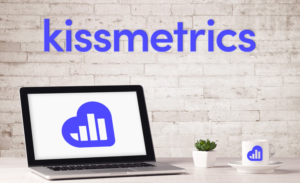
10 Essential Content Marketing Analytics Tools for 2025
Brief Overview: Kissmetrics is a conversion-focused tool that tracks user behavior across the customer journey, making it useful for content marketers aiming to improve conversions and user retention.
Pros:
Excellent behavioral tracking and user segmentation.
Integrates well with email marketing.
Strong focus on conversions and ROI.
Detailed funnel reporting.
Cons:
Expensive pricing structure.
Limited real-time data reporting.
Requires technical setup for full functionality.
No native social media analytics.
9. Mixpanel

10 Essential Content Marketing Analytics Tools for 2025
Brief Overview: Mixpanel offers advanced analytics focused on user behavior and conversion tracking, making it ideal for content marketers aiming to enhance user engagement and optimize content funnels.
Pros:
Great for tracking user behavior and engagement.
Provides detailed funnel analysis.
Customizable reports and user segmentation.
Strong focus on mobile analytics.
Cons:
Expensive for smaller businesses.
Lacks traditional web metrics.
Requires technical knowledge for setup.
Limited free-tier capabilities.
10. Matomo (formerly Piwik)

10 Essential Content Marketing Analytics Tools for 2025
Brief Overview: Matomo is an open-source analytics platform providing a high level of privacy. It’s useful for content marketers who prioritize data ownership and privacy without compromising on analytics capabilities.
Pros:
Open-source with customizable features.
Prioritizes data privacy and ownership.
No data sharing with third parties.
Offers a range of analytics capabilities similar to Google Analytics.
Cons:
Limited support and resources for troubleshooting.
Requires hosting and technical maintenance.
Complex setup for beginners.
Fewer integration options with external tools.
Summary Comparison Table
| Tool | Features | Pros | Cons |
| Google Analytics | Real-time, demographics, integrations | Free, extensive features, real-time data | Complex, privacy concerns |
| SEMrush | SEO analytics, keyword research, competitor analysis | Competitor insights, backlink tracking | Expensive, complex UI |
| HubSpot Analytics | CRM integration, social tracking, lead tracking | User-friendly, in-depth lead tracking | High cost, HubSpot-dependent |
| Adobe Analytics | Customizable reporting, multi-channel tracking | Customization, data visualization | Expensive, steep learning curve |
| Sprout Social | Social media tracking, sentiment analysis | Social insights, automation | Social only, high cost |
| Ahrefs | SEO focus, keyword and backlink analysis | Content gap analysis, simple UI | Expensive, SEO-only |
| BuzzSumo | Social content tracking, trending topics | Influencer outreach, trending topics | Limited functionality |
| Kissmetrics | Conversion tracking, user behavior | Funnel reports, email integration | Expensive, no social tracking |
| Mixpanel | User behavior, mobile analytics | Engagement tracking, customizable | Expensive, technical setup |
| Matomo | Privacy-focused, open-source | Data ownership, customizable | Technical setup, limited support |
Conclusion
Each tool serves a distinct purpose and is best suited for specific content marketing needs. For general website analytics, Google Analytics and Adobe Analytics are excellent choices. Sprout Social and BuzzSumo are optimal for brands with a strong social media presence, while SEMrush and Ahrefs are ideal for SEO-focused content strategies. For privacy-conscious users,�
Matomo provides a high degree of control, whereas HubSpot is best for CRM-driven analytics. Choose the one that aligns with your content marketing objectives, budget, and technical capabilities to ensure an efficient, results driven.


